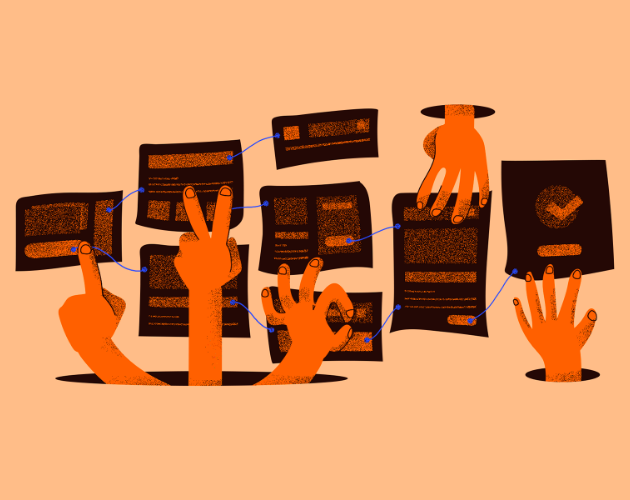We have talked about brand loyalty before. So how do brands develop this loyalty in their customers? By studying this, we can perhaps get a few ideas on how to create loyal customers to our businesses or our brand.
Customer Types
Branding studies play a big role in the purchasing process. The budget and time allocated by companies for branding make a difference when it comes to inviting the consumer to buy first. The same is effective in keeping the consumer buying after the first purchase. Branding and consumer rituals can make a brand cling to its customers. When a customer and a brand are confronted, customers are divided into several groups in terms of their reactions to the same brand. Let's illustrate these consumer groups through a mobile phone brand. Our brand on hand: Apple.
Price Sensitive Buyer:
There is no brand loyalty to this buyer. An Apple brand phone that we have chosen as an example is just an option for this consumer. They will probably examine and compare the price and features of the product and make such a decision.
Habitual Buyer:
As soon as this buyer needs a phone, they will come to our sample product, Apple. They probably care about price, but can't be bothered to change their habits.
Satisfied Buyer:
Although this buyer is looking at the price issue, Apple uses it. Satisfied with it. Before purchasing a product, he is probably waiting for a decrease in price, a promotion or a promotion.
Dedicated Buyer:
This is the buyer that every brand, every business dreams of. This buyer has no price sensitivity! Just produce products. If we go through our example; this buyer is waiting for Iphone 7 right now. Even though the 6s Plus in your hand is playing smoothly. This buyer recommends your products to everyone and praises you for your business and services when it comes to the subject.
Set An Example!
If you are a business or brand owner, take a look at your customer base. If you have a restaurant or a restaurant, do you have a frequent visitor to your business and bring their guests? It doesn't matter whether it's a construction company, a hairdresser, a pastry shop or a private hospital. Every business can create loyal customers. So how?
How to Build Brand Loyalty?
 Design brings innovation. Innovation strengthens your brand and the emotion created by your brand. Strong brands gain loyal customers faster. This will increase their profits. The important thing is to continue this cycle.
Design brings innovation. Innovation strengthens your brand and the emotion created by your brand. Strong brands gain loyal customers faster. This will increase their profits. The important thing is to continue this cycle.
Psychology and Brand Loyalty
Here it goes into a little bit of psychology. I will try to simplify it as much as possible. Human needs are in a hierarchy or order of importance. This order extends from the most basic needs to lighter needs. You can examine the world-accepted hierarchy of needs (Maslow Theory) from the visual below.

This theory is now criticized. Because people also artificially feel the needs of a higher level. Or they artificially jump up the classroom by meeting those level of needs. Here we are to address the top class, the top of the pyramid, the ego who wants to realize themselves, in branding, creating a brand or developing brand loyalty. People will feel more self-confident and happy at this stage.
Referring to the need for self-realization at the top of the pyramid is the best way to build Brand Loyalty, according to Bj Bueno, the co-founder of the Cult Branding brand, a company experienced in building brand loyalty and author of The Power of Cult Branding. Because the needs in the upper steps are more related to the future of the person and the part known as the standard of living.
Do you think I am wrong? You might think so. Then tell me about the people who buy an Apple phone in 36-month installments for twice its value, the costs incurred by people who chek in at Starbucks, and why bosses use Mercedes. Successful products create a consumer base. We were divided into people using Apple and people using Android. There are those who ride Mercedes, Volkswagen drivers, Volvo drivers ... Despite many places in the city, there are those who spend time in the same place every night. Successful products and services build their own audiences. They are successful because they build their own audiences.
Stages of Brand Loyalty
Customer loyalty has been examined in four different stages as a result of researches on buyers.
Cognitive Loyalty
Here the customer is still conscious. This is where loyalty is the lowest. You have information about your products or services and knows your prices. They have shopped from you before and were satisfied. At this stage, the buyer consciously chooses you. The customer base of many businesses is in this class.
Emotional Loyalty
At this stage, the customer is satisfied. It has developed a positive attitude towards you and your brand. He probably recommends you when the subject comes up. We can say that the previous Cognitive Fidelity stage has completed the shopping.
Habitual Loyalty
In the third stage, the buyer is satisfied with his purchase and is determined to shop from you again. When he needs your product or finds someone who needs it, he talks about you and your brand, and works like a positive representative of your brand.
Operational Fidelity
This stage is the stage where loyalty is the strongest. The buyer is determined to continue to buy from you under all circumstances. At this stage, you now even have credit for making mistakes. Your customers will also manage you up to a certain point. At this stage, a buyer will constantly follow your brand and your innovations and react positively to them.
Conclusion
In order to increase the number of loyal customers of your brand, you need to make a correct brand positioning in your customers' minds. A correct branding study will return to you profitability now and in the future. The important thing is to make this type of work regular and create a sense of continuity. Be sure, big brands are big because they decide to go big. With a correct brand positioning work, you can gain loyalty from your existing customers and invest in yourself and your business in gaining new customers. Brands with loyal customers don't just sell products. They also sell the privilege of being customers of the product. Whether you sell a good product or sell this product cheaply does not give you customer loyalty. If your customers see themselves differently from those who are not your customers, if your brand gives them a privilege, then the job becomes emotional and loyalty begins.


